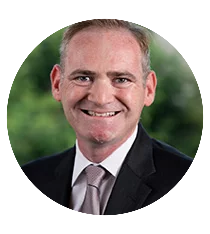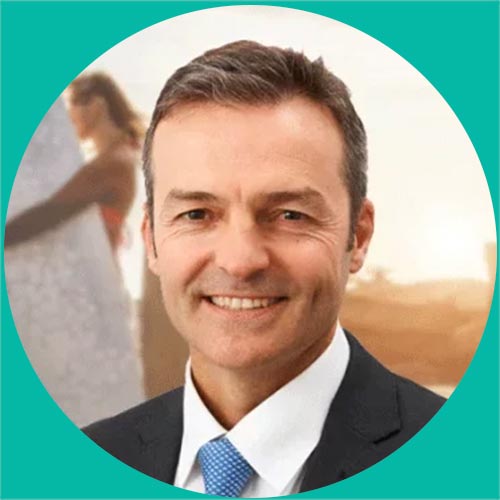Smart glasses: What Zeiss can learn from Google’s mistakes
Despite being one of the most successful companies in the world, Google isn’t flawless. One of it’s most well-known fails is Google Glass. There is a lot to learn from Google’s mistakes, so we thought we’d share our thinking on this failed marketing launch.
The most popular post-mortem explanation for why Google Glass failed is because of the form factor. Many say the glasses looked dorky. Their obvious form factor raised privacy concerns.
German optical manufacturer Carl Zeiss AG has entered the optical wearables market with their Smart Lens prototype. Unlike Google Glass, the glasses look nearly identical to a standard pair of glasses.
Engadget sums up their tech like this:
The system from Carl Zeiss breaks down like this: The battery, processor and other guts of the smart glasses are packed into the “arm” of the prototype glasses. That’s all wired into a tiny OLED display near where the arm meets the glass lens; the images on that display are then projected through a polycarbonate/mirror “light path” attached to the edge of the lens that functions like a much more complicated prism.
The media interest is afoot, and PC World produced this video featuring an interview with Zeiss’s Director of Business Development, Dr. Kai Jens Stroder:
The message is typical of Zeiss: an articulate and lucid focus on technical features at the expense of user benefits. The reporter’s final lines of this video sums up what potential customers may want to know:
So when can you get your hands on a pair of these? Carl Zeiss has developed the prototype and it’s just looking for a partner to put them into glasses that you can buy, hopefully sometime soon.”
I appreciate it’s early days, but this is precisely the type of ambiguity that had Google Glass trundling off to an early grave. There are at least four more reasons why Google Glass failed and they have nothing to do with the form factor. Zeiss would do well to note some fairly basic product launch lessons arising from Google Glass’s failure to launch:
Fix 1: Hold a real product launch by setting a launch date
When Apple launches a new product, they always set a date that they’ll make the product available to buy. Google Glass got tonnes of PR by holding a limited sale of their beta product for early adopters. But, they never set a date for when the actual product might be consumer ready.
Fix 2: Carry out an advertising campaign
I have no idea what Google spent to develop Google Glass but I’m guessing it was at least in the tens – if not hundreds – of millions of dollars. Why not follow up development with a mainstream paid advertising campaign? They didn’t. Instead, they allowed their PR department to carry the burden of publicity. This approach failed to deliver a consistent message sharing the benefits of the product.
Fix 3: Associate a killer app for the product
On that note, why did we even need Google Glass? How could we use it? What was the killer app for this product and why would I spend hundreds of pounds to own one? Google gave us some pretty exciting videos showing amazing – albeit vague – possibilities. As a result, it’s hard to remember why this product would make my life better. When Zeiss looks for their tech partner(s), they’d be smart to choose partners that solve a big problem that we can’t easily solve with our phones or tablets.
Fix 4: Make it easy to buy
Google spent months teasing us about Google Glass: “It’s coming… almost there… any day now… hopefully sometime soon…” (sound familiar)? This long tease cycle is a trap that Zeiss should aim to avoid. I’m surprised Zeiss shared this news with the press before identifying a viable partner. By announcing too early, they telegraph their plans to competitors. This may compel competitors to speed up their launches and may make partners more difficult to negotiate with.
In my experience, there’s no question Zeiss makes some of the best products in their category. With that said, no one would ever say they are ‘fast to market’. By choosing to announce so early, they run the risk of teasing us far too long. It will likely take a long time to find a partner that offers a killer app. By the time they are ready to launch, our intrigue might dissipate.
We are hoping that Zeiss learns from Google’s mistakes and uses some of the fixes above to bring a potentially amazing product to the larger tipping point it will need to gain traction in the market.
(NOTE: Want to see how your practice marketing measures up against the best in class? Take this 5-minute quiz to see how you stack up in the 9 areas of practice marketing and get specific tips and advice on how you can improve your weak points and better leverage your strengths).
About the author

Rod Solar
Founder & Scalable Business Advisor / fCMO
Rod Solar is a co-founder of LiveseySolar and a Scalable Business Advisor for its customers. Rod mentors and coaches eye surgery business CEOs/Founders and their leadership teams to triple their sales, double their profit, and achieve their “ideal exit”.
Related Posts
Meet our Co-Founders
We’re passionate about helping leaders of high-quality, growth-minded practice owners double their practice revenue

Rod Solar
Founder & Scalable Business Advisor
For over 20 years, I’ve helped ophthalmology entrepreneurs scale their private practices. I specialise in doubling revenue within three years by offering a proven framework, hands-on experience, and a team of experts who implement what works. We take the guesswork out of growth and scale, so you can focus on delivering exceptional patient care while maximising the value of your business.
LiveseySolar completely transformed the way we were approaching this… We’ve gone from having just the dream of having a practice to having a practice up and running with people making inquiries and booking for procedures… It’s extremely pleasing. We feel lucky we connected with LiveseySolar.
— Dr Matthew Russell, MBChB, FRANZCO, specialist ophthalmic surgeon and founder of VSON and OKKO

Laura Livesey
Founder & CEO
I’m the co-founder & CEO of LiveseySolar. I’ve developed powerful eye surgery marketing systems that increase patient volumes and profits for doctors, clinics, and hospitals, since 1997.
Rod and Laura know as much about marketing surgery to patients as I know about performing it. They are an expert in the field of laser eye surgery marketing. They know this industry inside out. I believe that they could help many companies in a variety of areas including marketing materials, sales training and marketing support for doctors.
— Prof. Dan Reinstein, MD MA FRSC DABO, founder of the London Vision Clinic, UK











